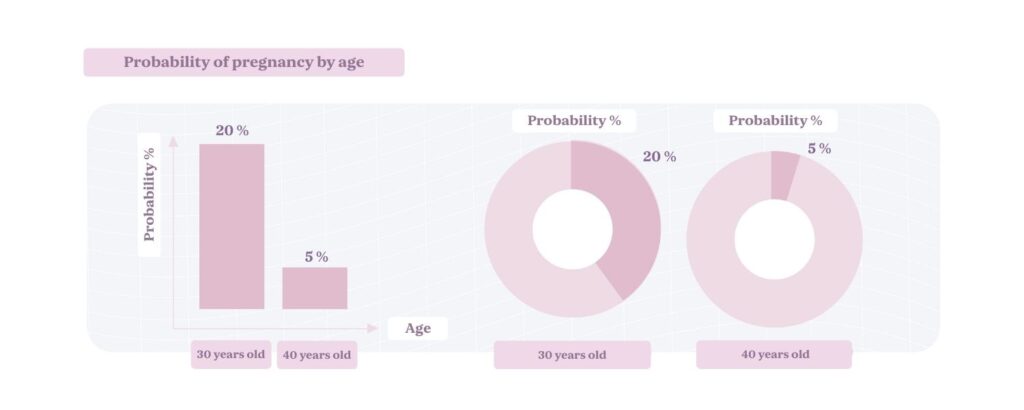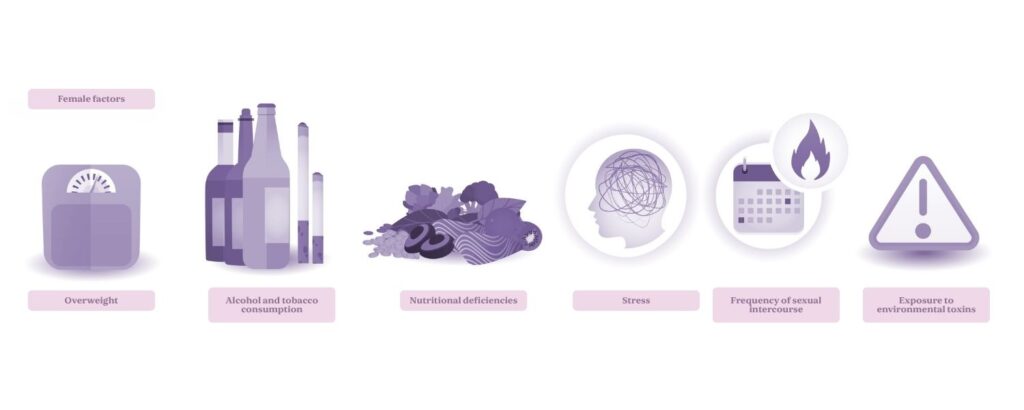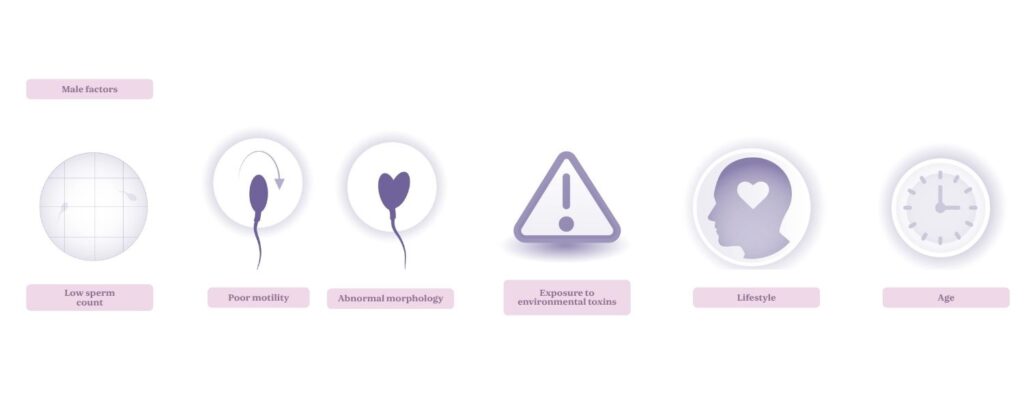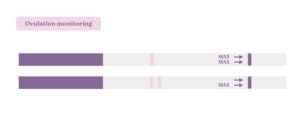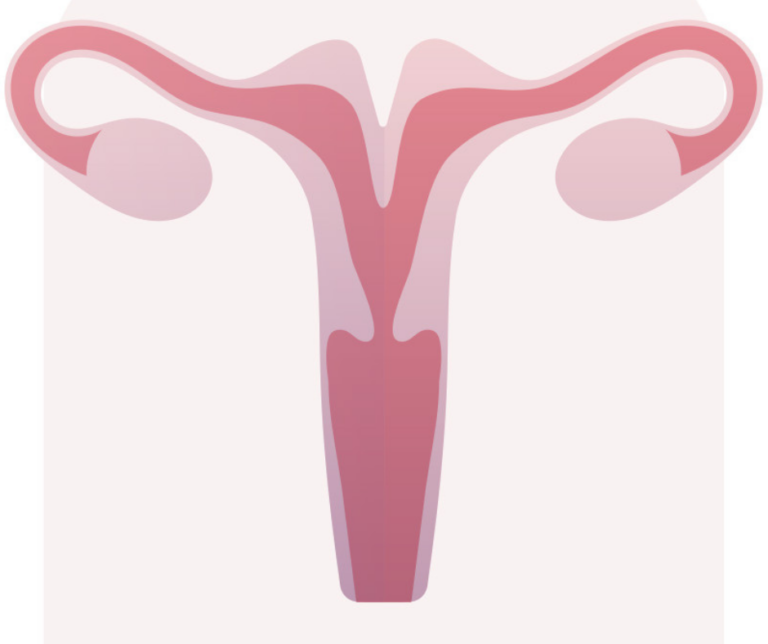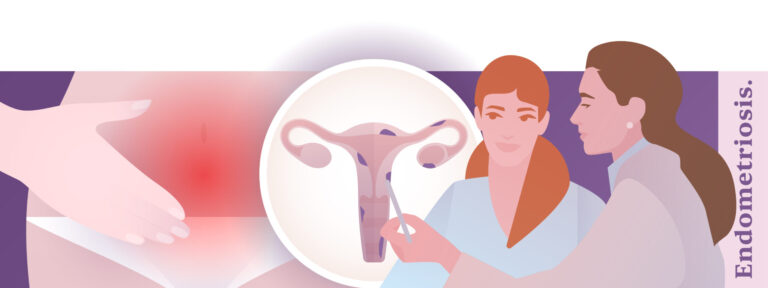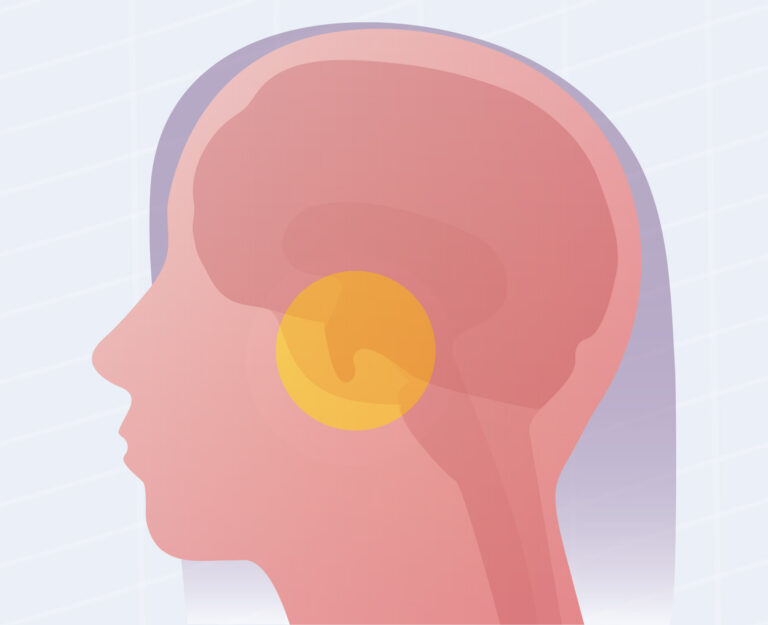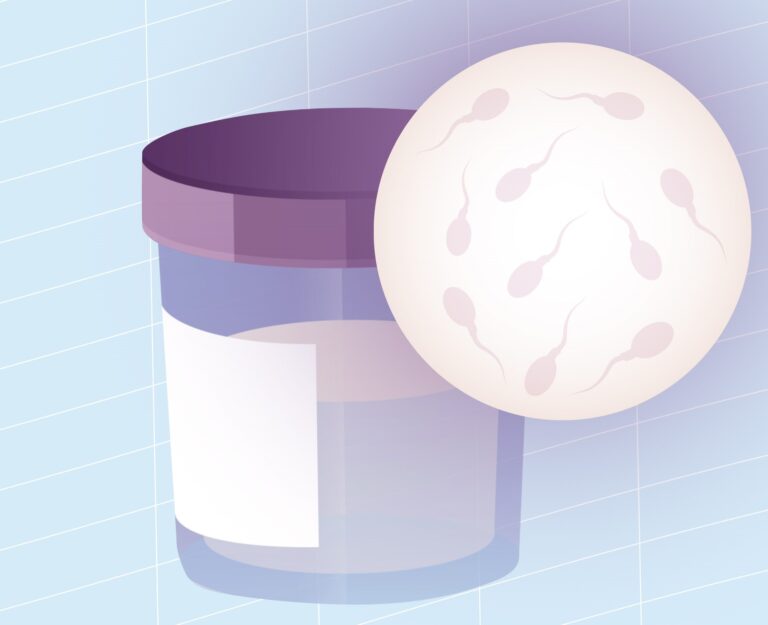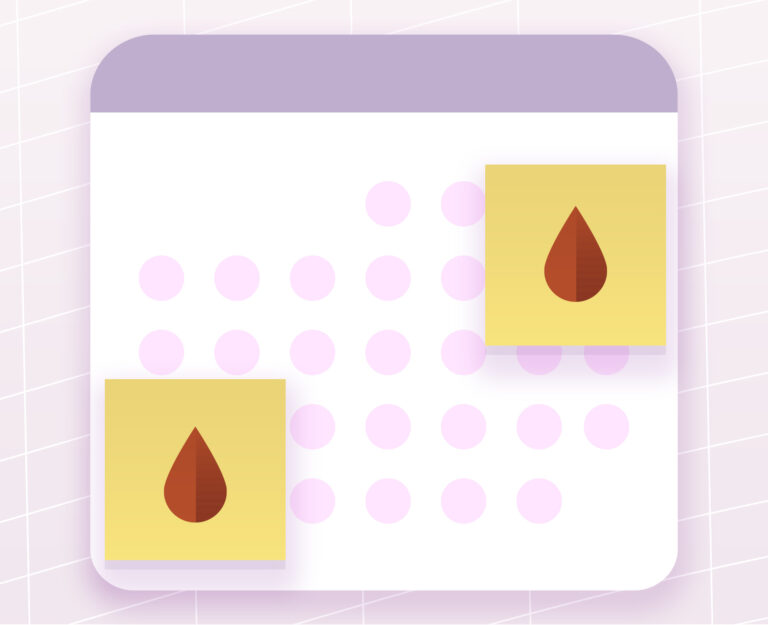
Table of Contents
ToggleThe chances of getting pregnant on the first try is something many couples wonder about when they decide to start a family. Generally, people tend to believe it will be a quick and easy process. However, this is not always the case. There are many factors involved in the reproductive process that can make it more difficult to conceive—even for healthy couples.
For this reason, we want to explain some important concepts to help you better understand the complexity of natural conception and the factors that can influence fertility.
How long does it take to conceive?
First of all, it’s important to highlight that every case is different. As we mentioned, many factors can affect the process.
According to the Spanish Society of Gynaecology and Obstetrics in their clinical practice guide, under normal conditions, humans have about a 20% chance of conceiving each month. Therefore, after one year of trying, 84% of couples are successful, and after two years, the figure rises to 92%.
But things change when age becomes a factor. For instance, data from the Spanish Fertility Society (SEF) shows that a 30-year-old woman has that same 20% chance per month, but by the age of 40, it drops below 5%.
This makes it clear that getting pregnant on the first try is not always easy.
Factors that affect conception
Age of the woman
Age is one of the most influential factors in the reproductive process, especially for women. Women under the age of 30 have about a 20% chance of conceiving during each menstrual cycle. After the age of 30, these chances gradually decline, and the decline becomes more significant after age 35. Understanding this can help manage expectations when trying to get pregnant on the first try.
This is primarily due to a reduction in ovarian reserve and egg quality. As we age, the number of eggs available for fertilisation decreases, and the ones that remain tend to be of lower quality. This can make conception more difficult and increase the risk of complications such as miscarriage.
Medical conditions
Certain medical conditions can also affect fertility and make it harder to conceive. Some of the most common include:
- Polycystic Ovary Syndrome (PCOS): A hormonal disorder that affects ovulation.
- Premature Ovarian Failure (POF): Early loss of ovarian function before the age of 40.
- Hyperprolactinemia: High levels of prolactin, a hormone that can interfere with ovulation.
- Thyroid disorders: Both hypothyroidism and hyperthyroidism can disrupt the menstrual cycle.
- Endometriosis: A condition where endometrial tissue grows outside the uterus, causing cysts or adhesions that make conception difficult.
Lifestyle
While we cannot control all biological or genetic factors, lifestyle choices have a significant impact on fertility. Some habits that can affect fertility include:
- Obesity or being overweight: Excess weight can disrupt hormone balance and ovulation, reducing the chances of conceiving.
- Alcohol and tobacco use: Both are linked to reduced fertility in both men and women. Tobacco in particular can damage eggs and impair reproductive function.
- Nutritional deficiencies: A diet low in essential nutrients like folic acid, iron, or zinc can interfere with fertility. Maintaining a healthy, balanced diet supports a well-functioning reproductive system.
Stress
Chronic stress can negatively impact fertility. Anxiety and stress can disrupt hormone levels and menstrual cycles. In addition, stress can lower sexual desire, which may indirectly reduce the likelihood of conception. Studies have shown that women with high levels of stress are less likely to conceive.
Frequency of intercourse
How often a couple has sex plays a crucial role. Regular intercourse increases the chances of coinciding with ovulation. Medical guidelines recommend frequent intercourse, especially during the fertile window, to optimise the chances of getting pregnant. For couples trying to get pregnant on the first try, consistency and timing are essential.
Exposure to environmental toxins
Exposure to certain chemicals and environmental toxins can adversely affect fertility. These include:
- Pesticides and herbicides: Can disrupt hormonal balance.
- Polychlorinated biphenyls (PCBs) and phthalates: Found in some plastics and cosmetics, and linked to lower fertility in studies.
- Radiation and air pollution: Long-term exposure can affect egg quality and hormone function.
Male factor
Fertility is not solely a woman’s issue. Male reproductive health also plays a critical role. Low sperm count, poor sperm motility, or abnormal sperm shape can reduce the chances of pregnancy. Lifestyle, age, and exposure to toxins can also affect sperm quality.
How to increase your chances of conceiving
Ovulation tracking
Understanding when you ovulate is essential for maximising your chances of conceiving. Using an ovulation test to detect the surge of luteinising hormone (LH) can help identify your most fertile days. Ovulation typically occurs 24 to 36 hours after the LH surge, making this the ideal time for intercourse.
Best time to try for pregnancy
The best time to try to conceive is during the fertile window, which usually includes the five days leading up to ovulation and the day of ovulation itself.
Improve your lifestyle
- Regular exercise: Helps regulate hormones and improve general health.
- Balanced diet: Include essential nutrients like folic acid, iron, vitamin D, and zinc.
- Stress management: Techniques like meditation, yoga, or therapy can help.
- Avoid smoking and alcohol: Both negatively impact fertility.
Maintain a healthy weight
Both overweight and underweight can disrupt hormonal balance. Maintaining a healthy BMI is essential.
Regular sexual activity
Having intercourse two to three times per week increases the likelihood of conception.
Supplements and vitamins
Folic acid, vitamin D, omega-3, and antioxidants like vitamin E and selenium may help, but consult your doctor first.
When to see a fertility specialist
If you’re under 35 and have been trying for a year, or over 35 and trying for six months without success, it’s time to see a specialist.
Fertility assessments and treatments like IVF or hormonal therapy may provide support.
You can book an appointment at one of our clinics and we’ll be happy to assist you.
Watch our video: Fertility tips to get pregnant on the first try
Book your first consultation
Request your appointment and get your first diagnosis. We’d love to hear your story.



